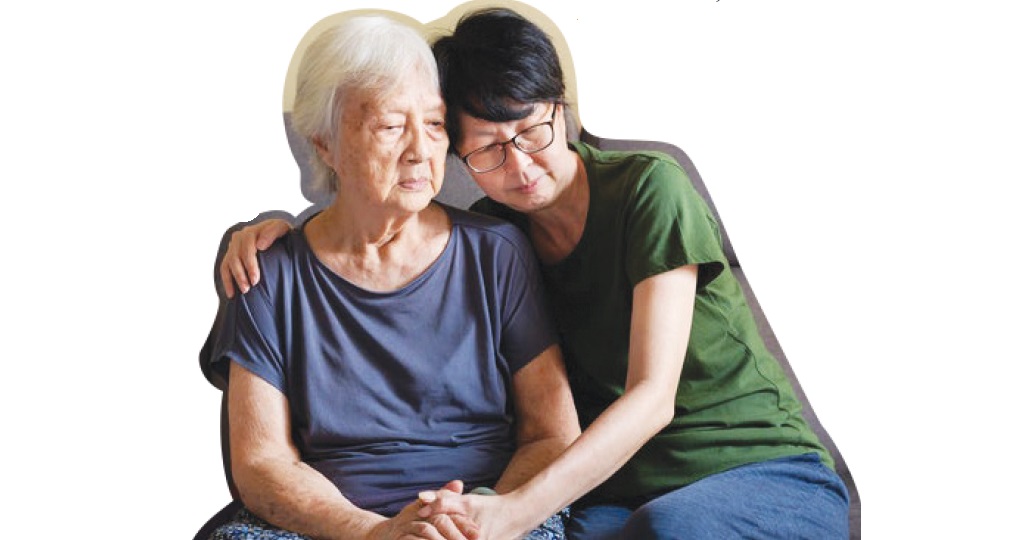Editor’s Note
In this week’s issue of HERALD, we reflect on Pope Francis’ message for the fourth World Day for Grandparents and the Elderly. This occasion calls us to examine our responsibilities towards the older generation, reminding us that our treatment of the elderly is a measure of our humanity.
Jul 26, 2024

By Patricia Pereira
In this week’s issue of HERALD, we reflect on Pope Francis’ message for the fourth World Day for Grandparents and the Elderly. This occasion calls us to examine our responsibilities towards the older generation, reminding us that our treatment of the elderly is a measure of our humanity. We also take a look at the pressing issue of cyberbullying and the urgent need for legal reforms to protect victims and hold perpetrators accountable.
Caring for the elderly is no easy task. It’s a responsibility that can often test our patience and endurance. We get frustrated when they are slow, messy, or forgetful. It’s a natural response to feel agitated when our lives are already brimming with our own responsibilities and stress. However, we must ask ourselves: Does this justify neglecting our duties towards them?
The increase in the number of elderly being placed in old folks’ homes is a troubling trend. While these facilities can offer the necessary care and attention that we may not be able to provide, they should not become a convenient escape from our responsibilities. If work commitments, space constraints, or lack of proper facilities prevent us from caring for them at home, it is understandable to seek external help. However, this should not translate to abandoning them.
Our elders are repositories of wisdom and history. They have nurtured us, shaped our values, and contributed significantly to our lives. They deserve our respect and care in their twilight years. Regular visits to these homes, taking them out occasionally, and including them in festivities are simple yet meaningful ways to show that they are not forgotten.
Festivals and family gatherings are particularly significant. These are times when the elderly often feel the pang of loneliness most acutely. Ensuring they are part of these joyous occasions not only brightens their lives but also strengthens familial bonds. It is a reminder to them — and to ourselves — that they remain an integral part of the family.
Building bridges between generations is also essential. It fosters understanding, respect, and compassion. Initiatives that encourage interaction between the young and the elderly can be immensely beneficial. Whether through community/church programmes, schools, or family activities, such interactions enrich both the young and the old, creating a cohesive society that values all its members.
Programmes that facilitate story-sharing, skill exchange, and collaborative activities can help in bridging the generational gap. Young people can learn about resilience, history, and values from the elderly, while the elderly can feel a renewed sense of purpose and connection.
Beyond our immediate family, we must also consider our broader societal responsibilities. The way we treat our elderly reflects our values and compassion as a community. It is incumbent upon us to advocate for policies and initiatives that support the elderly, ensuring they have access to quality healthcare, social services, and a dignified life.
While reflecting on our responsibilities towards the elderly, we must also turn our attention to another pressing issue: cyberbullying. As our lives become increasingly digital, the dark side of this connectivity has become alarmingly evident. Cyberbullying can have devastating effects on mental health, self-esteem, and overall well-being. Unfortunately, our current Malaysian laws are not robust enough to tackle this menace effectively.
Victims of cyberbullying often suffer in silence, feeling helpless and trapped. The anonymity that the internet provides emboldens bullies, making it difficult to trace and hold them accountable. It is imperative that our legal framework evolves to address these challenges. Laws must be amended to ensure that cyberbullies face just punishment and that victims have adequate protection and recourse.
As individuals and as a community, we have a role to play in combating cyberbullying. Education is key. By raising awareness about the consequences of cyberbullying and teaching digital etiquette from a young age, we can cultivate a culture of respect and empathy online. Parents, educators, and community leaders must work together to instil these values.
Support systems for victims are equally important. Encouraging open communication, providing mental health resources, and fostering a supportive environment can help victims cope and recover. Social media platforms must also take greater responsibility in monitoring and controlling abusive behaviour on their sites.
Our responsibilities towards the elderly and the fight against cyberbullying are critical issues that demand our attention and action. By honouring our elders and ensuring they feel valued and cared for, we uphold the dignity and respect they deserve. Simultaneously, by taking a firm stand against cyberbullying, we protect the vulnerable and promote a safer, more compassionate online community.







Total Comments:0